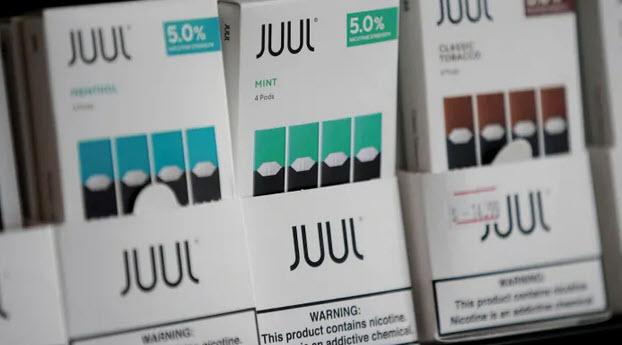US Sues To Unwind Altria’s $12.8 BN Investment In Juul
Back when Altria first announced it had jumped on the e-smoking bandwagon by purchasing a 35% stake in vaping startup Juul, we warned that it would end in tears. Little did we know just how many tears, and how much destroyed value less than two years later we would witness. But more importantly, we have also found the one industry that will not get a single dollar in bailout money.
Late on Wednesday, the Federal Trade Commission sued to unwind Altria’s $12.8bn investment into Juul, claiming the tobacco giant bought the stake to unlawfully eliminate competition in the sale of e-cigarettes.
This, of course, is ironic considering the shambolic state of the e-cig market. Nonetheless, the FTC’s claims are the latest blow to a deal that was doomed ever since Altria first announced its interest in first struck in 2018 when Altria acquired just over a third in Juul. Since then, Altria has written off almost its entire investment as regulatory scrutiny over Juul’s marketing and the health effects of their products has mounted.
As the FT reports, the FTC alleged Altria bought the stake in Juul in an attempt to defuse the start-up’s challenge to its own line of e-cigarette products. In addition to the stake, the 2018 deal gave Altria board access and included a six-year non-compete agreement.
“For several years, Altria and Juul were competitors in the market for closed-system e-cigarettes. By the end of 2018, Altria orchestrated its exit from the e-cigarette market and became Juul’s largest investor,” said Ian Conner, director of the FTC’s bureau of competition, in a statement. “Altria and Juul turned from competitors to collaborators by eliminating competition and sharing in Juul’s profits,” he added.
In response, Altria’s general counsel Murray Garnick said that “we believe that our investment in Juul does not harm competition and that the FTC misunderstood the facts,” adding that “we are disappointed with the FTC’s decision, believe we have a strong defence and will vigorously defend our investment”, although it wasn’t clear what investment there is left to defend.
The claims which were made in a complaint in the FTC’s internal administrative court follow a $4.5 billion writedown Altria made to that investment last year and a subsequent $4.1 billion charge in January, when it also scaled back its partnership with Juul. Altria, the parent of Marlboro-owner Philip Morris USA, has since ceased the sales and distribution services it had provided the San Francisco-based company.
The amended agreement announced in January also allowed Altria to resume developing e-cigarettes under certain circumstances, including if the value of its investment in Juul fell below $1.3 billion, a more than 90% drop on the initial deal. That trigger has almost certainly been met: Juul, which was valued at $38 billion after Altria’s initial investment, has suffered a crushing decline as federal and state authorities have increased scrutiny of vaping among teenagers.
Amusingly, KC Crosthwaite, Juul’s chief executive, told employees this year that the company’s internal valuation stood at $20bn at the end of the fourth quarter, down from $24bn in the previous quarter. Good luck finding a buyer at that price.
Juul’s flavoured e-cigarette products have been accused of driving widespread vaping by young people, something which was obvious would happen to everyone except – unfortunately – the FDA. Juul discontinued most of its flavoured line last year ahead of a federal ban on flavoured e-cigarettes earlier this year.E-cigarette makers are in the process of seeking Food and Drug Administration approval for their products to stay on the market.
Fast forward to today, when on the verge of extinction, E-cigarette makers are seeking Food and Drug Administration approval for their products to stay on the market. The FDA this week asked a federal court for a four-month extension to a May deadline for submissions by e-cigarette companies, saying the global outbreak of coronavirus had halted necessary laboratory work.
As the FT concludes, the attempt by the FTC to unwind the investment comes as it increases scrutiny of completed deals involving start-ups. In February, the agency announced a study into a decade of such transactions by large technology companies.
Tyler Durden
Wed, 04/01/2020 – 22:58
via ZeroHedge News https://ift.tt/2wbDvm0 Tyler Durden
